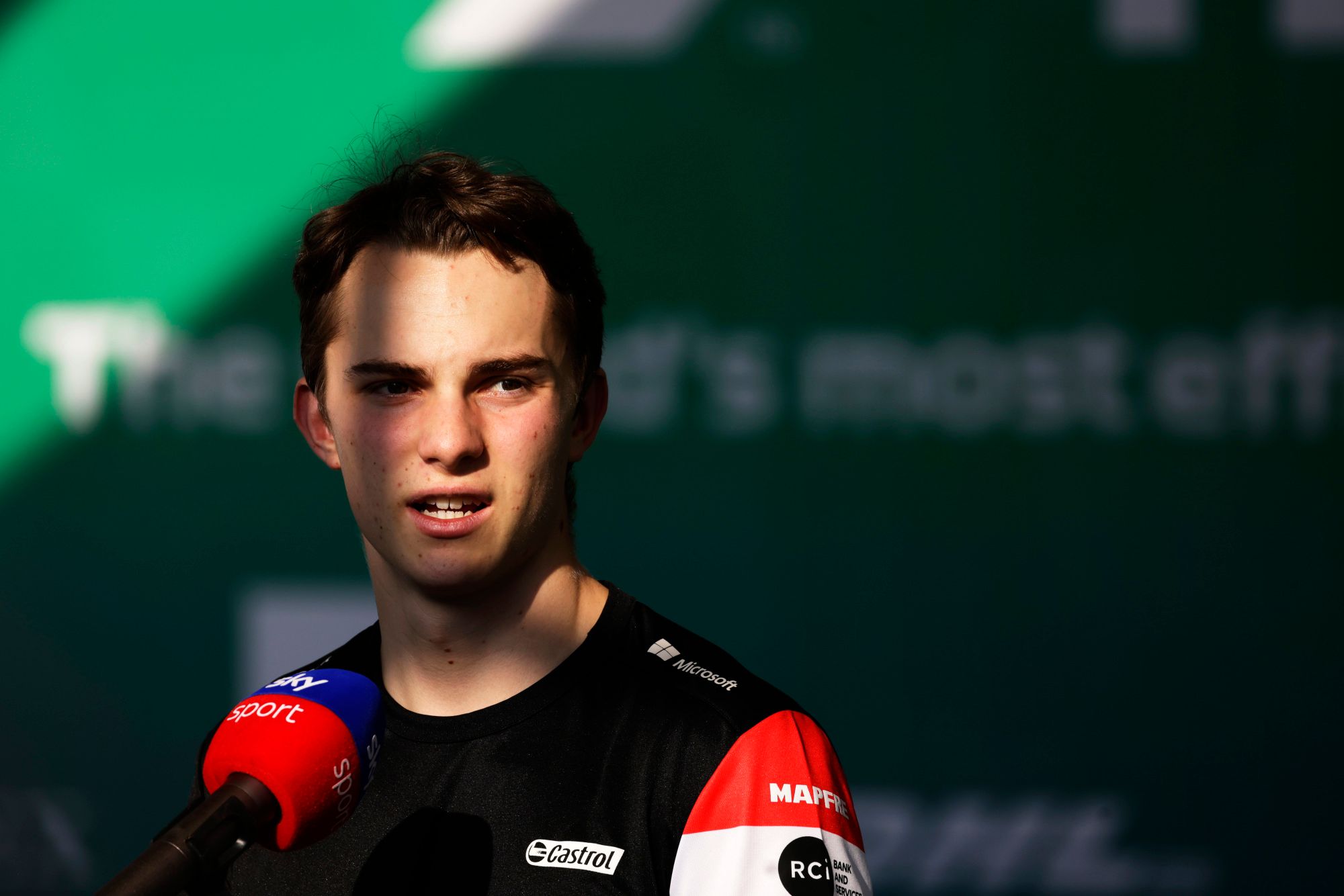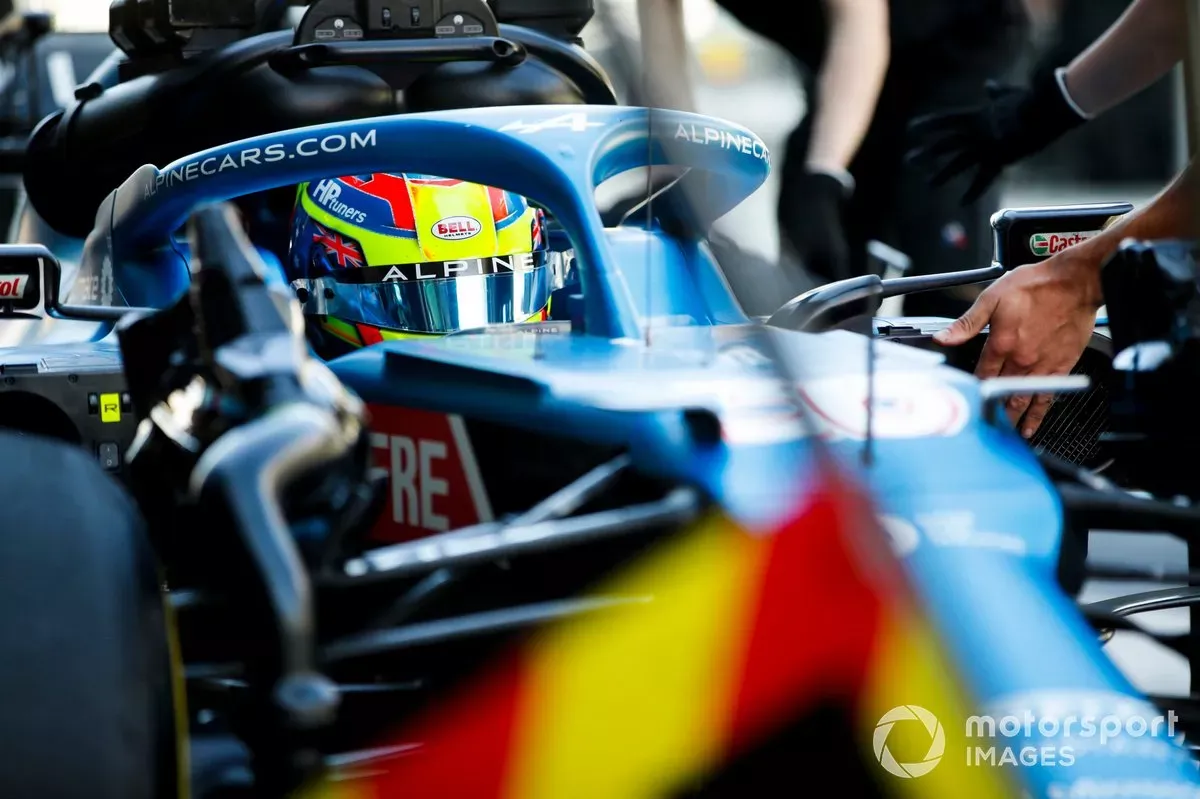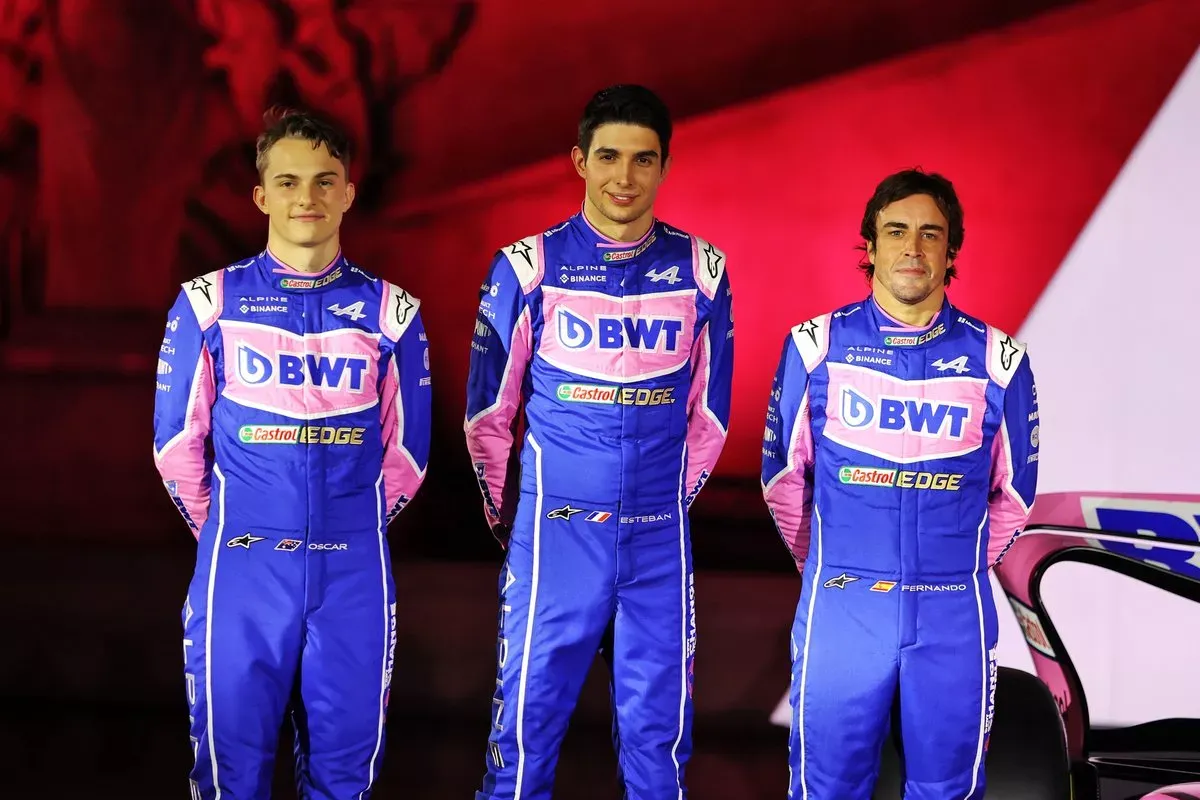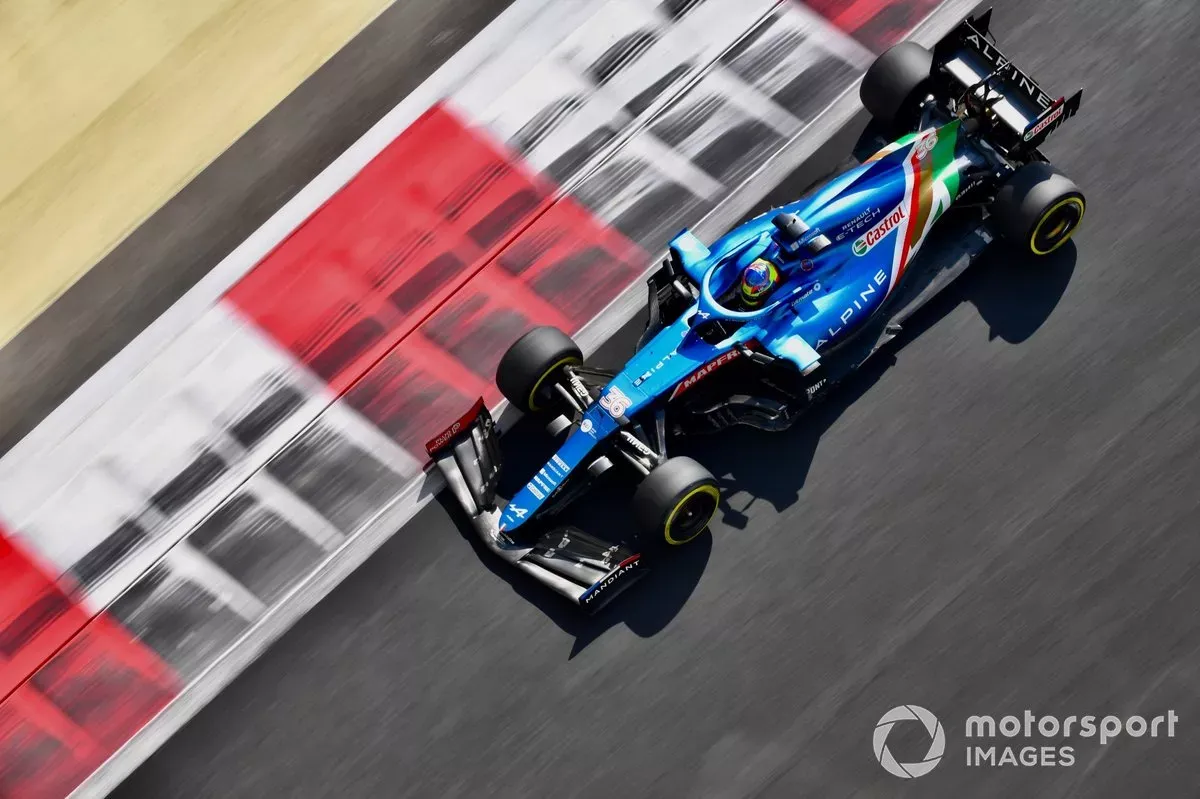Formula One News
The battle between McLaren and Alpine over Oscar Piastri’s services for 2023 has dominated the Formula 1 news agenda over recent weeks.

Although ultimately it was a matter for F1’s Contract Recognition Board, and cost Alpine nearly £540,000 in legal fees, it also included the situation descending at times into personal insults.
Piastri has faced accusations of lacking ‘integrity’ by Alpine team principal Otmar Szafnauer for turning his back on the squad that helped guide his career as part of its young driver Academy since 2020.
Piastri was also on the receiving end of criticism from Mercedes team boss Toto Wolff who made pointed remarks about ‘integrity’ and ‘karma’.
On the other side of the table, McLaren has faced a backlash on social media for the way that it put together a deal with Piastri for 2023 while it still had Daniel Ricciardo under a firm contract.
But with the dust now settled on the case, and both sides having had to present to the CRB its truth about what happened, a clearer picture of what really went on has emerged and the situation is very different from how some presumed.
Motorsport.com has spoken to several insiders who have good knowledge of the proceedings and developments, and the reality is that rather than the Piastri affair being a case of a ruthless young driver and his management team betraying a team, it was more a matter of them feeling let down and instead concluding that they had no option but to look elsewhere or risk getting nothing.
And from McLaren’s perspective, it was guilty only of chasing the most competitive driver line-up it could when a once-in-a-generation opportunity fell into its hands.
The CRB arguments

The case between Alpine and the CRB is understood to have revolved around whether a ‘Terms Sheet’ agreement – loosely mapping out Alpine’s plans for Piastri between 2020 and 2023 – that was lodged with the Contracts Recognition Board should have been treated as a definitive contract.
This document had originally been sent to Piastri and manager Mark Webber on November 15, 2021 as part of correspondence detailing the team’s response to it taking up an option it had.
At the time (and agreed in subsequent emails), Alpine and Piastri/Webber were clear that the best way to progress from this Terms Sheet was to sort out two separate contracts: one for being reserve in 2022 and another as an F1 race driver for 2023/2024.
In a letter that Alpine CEO Laurent Rossi sent on that date, he promised that a proper F1 agreement would be sent to him shortly - ‘with a view to executing the same no later than 10 business days after receipt of the same.’
No such F1 agreement was forthcoming though – either for the reserve deal or a race contract - and it is understood that there became growing frustration from Webber and the Piastri camp about the delays.
In correspondence between Webber and Alpine’s legal team over the following weeks, it became increasingly clear that things were not proceeding as quickly as the former F1 driver would have liked.
This was initially blamed on ‘bottlenecks’ in the system caused by a lack of resources, and then further delays as the team prepared for the launch of its new car.
Amid the build-up to the reveal of the A522 in late February, the team promised matters would be settled.
Webber duly asked if the contract could be sorted out by March 1 so the Piastri camp could have time to evaluate it before signing ahead of the season opening Bahrain Grand Prix.
On March 2, Webber was promised that the contract would be with him later that day.
Two days later, however, Webber was sent a ‘Draft Reserve Driver Agreement’, with a note that details of an F1 Agreement for 2023/2024 would follow as early as the following week.
This latter agreement did not land, as first it was explained that there had been delays caused by arranging a shared reserve driver role with McLaren that had been agreed with Alpine.
With the F1 season looming, and Alpine required by the Concorde Agreement to lodge a superlicence application with the CRB if Piastri was going to be allowed to run on track, it was proposed that the reserve driver arrangement get pushed through to sort the superlicence.
Then, a separate F1 Race Driver Agreement for 2023 and 2024 could follow at a later date.

With the reserve driver agreement not signed by either driver or team at that point, Alpine duly sent to the CRB on March 14 a document containing the November 2021 Terms sheet signed by both parties.
The team had added a label to the top stating it as a ‘Legally binding Heads of Terms’, even though what was supposed to be an attached contract in a separate sealed envelope (that would only be used in a CRB dispute) was not signed and did not feature these words.
This Terms Sheet was also crucially headed ‘Subject to Contract’ and laid out the ‘likely’ plan for Piastri to be a reserve driver for one year before a potential race seat in 2023.
The documents lodged referenced specifically only the 2022 reserve driver role and made no mention of any extensions or options to extend.
One day later, Alpine finally sent to Webber and Piastri its proposed F1 Agreement, although without anything definite in terms of teams for 2023 and beyond.
That only came on May 19, when Piastri was sent a proposal to sign a four-year contract from 2023 to 2026. But crucially this was not exclusively to race for Alpine, where his hopes had been pinned.
The timeline laid out for him was to race for Williams in 2023.
Then, obviously pending Alpine’s original plans for Fernando Alonso, in 2024 Piastri would either stay on at Williams for a second season or return to Alpine if the Spaniard left F1.
For 2025, it was decided that Piastri would have a firm two-year deal to race at Alpine through to the end of 2026.
It was this offer – which gave Piastri no hope of a short-term future at Alpine – that is believed to have been the final straw in making him decide not to sign and proceed.
Instead, Webber and Piastri agreed that the best route forward was to look elsewhere -– with informal talks having already begun with McLaren at that stage.
Sources have revealed that the CRB ruling noted that: ‘Alpine had been shilly-shallying about a F1 Driver Contract for Mr Piastri for the previous eight months and here they were now proposing a four-year contract commencing with a two-year loan arrangement with Williams.”
The talks with McLaren advanced and, with the team understood to have informed Daniel Ricciardo as early as May that it was looking at other options for 2023, a preliminary deal arrangement between the Woking-based team and Piastri was signed on June 4.
It is understood that this was initially to be in an unspecified role for 2023, just in case Ricciardo stayed on, but obviously with the intention being that Piastri would step up if a separation took place.
With both McLaren and Piastri satisfied that there was no rights to his services elsewhere, based on Alpine only having that ‘subject to contract’ Terms Sheet lodged at the CRB, and talks with Ricciardo accelerating to head in the clear direction of a parting of ways, Piastri’s final race contract was signed on July 4 – subject to there being a vacancy for him.
Ricciardo’s subsequent Instagram post on July 13 about being fully committed to McLaren for 2023 must therefore be viewed more as a negotiating tactic.
This would have been aimed at strengthening his hand when it came to the terms of a severance, rather than being a smoking gun of him being unaware of what McLaren was up to in the background: even if he may not have not specifically known about the timings of deals put in place with Piastri.
With the McLaren 2023 contract in place, Piastri kept his head down as the team began finalising the terms of its split with Ricciardo – which it wanted completed before announcing its future driver plans.
However, the matter got dragged in to the public domain when Alpine lost Alonso to Aston Martin at the start of the summer break and then announced Piastri for 2023 – prompting the youngster to post the infamous tweet that he would not be racing for it and triggering the eventual CRB hearing.
The final decision

In the end, the CRB’s decision was unanimous. The Terms Sheet being labelled ‘Subject to Contract’ meant it was far from being valid and, with nothing else having been lodged by Alpine, the obvious conclusion was that McLaren was the only team with a genuine contract for 2023 and beyond.
Interestingly, as a final act of conflict between Alpine and Piastri, the team argued to the CRB that the Australian should swallow his own legal fees of more than £120,000 as they felt he was not a party to the proceedings.
The CRB rejected that, as it felt he had every right to be represented. A further complaint from Alpine about the cost of McLaren’s legal representatives being ‘excessive’ was also thrown out.
Moving on
For Alpine, beyond the loss of Piastri and the full legal costs of all the parties that it must bear, there will be important lessons to learn in the future about how it deals with its drivers and their contracts.
It must be noted that Szafnauer only joined the team in early March, by which stage the situation was running hard: and it may not have been a priority for him to focus on documents already lodged at the CRB.
Pushed on what Alpine’s response to the events would be, Szafnauer said at Zandvoort: “All this happened in November of last year, so I guess it’s easy to blame people that aren’t here any more, but that’s not my style.
“The right thing to do is to have a look at what happened, understand where the shortcomings were and fix them for the future.”
While there seems no debate over the legal aspects of the Piastri matter, it is understood that for Szafnauer there remains an uncomfortable feeling regarding the morals of how things played out.
From McLaren’s side, while delighted that it has won one of the brightest rising talents we have seen in years, there is still a sense of unease about how Piastri was unfairly painted in some quarters over recent weeks, while it could say nothing in public to defend him.
As team boss Andreas Seidl said at Zandvoort: “I think I was a bit surprised about some of the comments I've read also from people that had no detailed knowledge of what was actually happening.
“I think some of these comments were therefore also inappropriate, not fair and just not respecting what was happening.
“If I just look at myself in such a situation, if I only know what happens from one side, I try to stay away from making comments on it. And I think that is also important to mention in order to protect Oscar.”